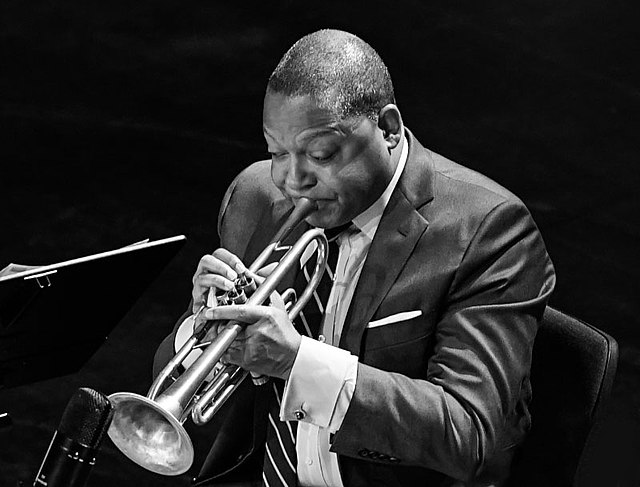
Learning Objectives
At the end of this lesson, students will be able to do the following:
- Outline the significance of Congo Square and Storyville to the African American community of New Orleans.
- Trace the lineage of jazz, while connecting to earlier African American music genres.
- Describe the unique demographics of New Orleans during the early to the late nineteenth century.
- List the socio-political events that contributed to the birth of jazz.
Introduction to Lesson 14
African American music—including work songs, spirituals, the blues, and ragtime—are drenched in improvisation and syncopation, those ancient African pillars of music. Improvisation and syncopation therefore remain a constant presence in the creative genius of an oppressed people—an expression “born out of a million American negotiations"(Burns 2001). Jazz music, as we’ll discover in this lesson, is next in this chain of connection.
Gumbo (Beginnings to 1917) ![]() , part one of the ten-episode PBS television miniseries JAZZ created and directed by Ken Burns (2001), makes a suitable analogy to the birth of jazz. The miniseries features Wynton Marsalis, a prolific trumpeter from New Orleans. Marsalis comments that jazz is “an art form that gives us a painless way of understanding ourselves” (00:40-00:48)
, part one of the ten-episode PBS television miniseries JAZZ created and directed by Ken Burns (2001), makes a suitable analogy to the birth of jazz. The miniseries features Wynton Marsalis, a prolific trumpeter from New Orleans. Marsalis comments that jazz is “an art form that gives us a painless way of understanding ourselves” (00:40-00:48) ![]() . This poignantly highlights the fact that the musical expressions of African Americans thus far had been wrought through pain, suffering, and as in blackface minstrelsy, blatant mockery and a stamp of inferiority.
. This poignantly highlights the fact that the musical expressions of African Americans thus far had been wrought through pain, suffering, and as in blackface minstrelsy, blatant mockery and a stamp of inferiority.

Jazz - 01 - Gumbo (Beginnings to 1917)

Jazz - 01 - Gumbo (Beginnings to 1917) [ 00:40-00:49 ]
The city of New Orleans was integral to the birth of jazz. “Jazz may have sprung up in a million places, but New Orleans is the city that gave it birth (Burns 2001).” Marsalis later compares the blues to the roux in a gumbo, one of New Orleans’s most famous cuisine. He says, “You can’t have gumbo without a roux” (25:44) ![]() . Roux is essentially a grimy mixture of flour and grease. Cooks mix it with water to cook and simmer various meats, e.g., chicken, sausage, or seafood, as well as vegetables, spices, seasonings, and quite frankly, any leftovers in the refrigerator. In short, jazz would not exist without the blues.
. Roux is essentially a grimy mixture of flour and grease. Cooks mix it with water to cook and simmer various meats, e.g., chicken, sausage, or seafood, as well as vegetables, spices, seasonings, and quite frankly, any leftovers in the refrigerator. In short, jazz would not exist without the blues.

Jazz - 01 - Gumbo (Beginnings to 1917)
Heebie Jeebies
Say, I've got the Heebies
I mean the Jeebies
Talking about
The dance, the Heebie Jeebies
Do, because they're boys
Because it pleases me to be joy
Wynton Marsalis
Jazz music is the power of now. There is no script. It’s conversation. The emotion is given to you by musicians as they make split-second decisions to fulfil what they feel the moment requires.
